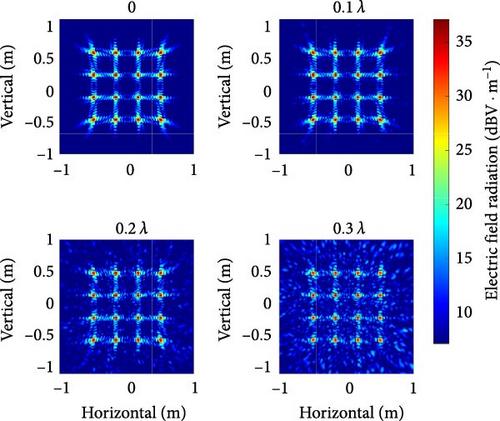Synthetic Aperture Interferometric Passive Radiometer Imaging to Locate Electromagnetic Leakage From Spacecraft Surface
Abstract
The localization of electromagnetic radiation leakage through cabin gaps is a critical and challenging aspect of electromagnetic compatibility (EMC) design for spacecraft with complex electromagnetic environments. This paper proposes a localization method based on synthetic aperture interferometric passive radiometry imaging. Electromagnetic radiation signals are measured at a certain distance from the spacecraft surface to form visibility samples. A Fourier transform pair between the visibility sample and the corrected brightness temperature for electromagnetic radiation leakage is established. The spacecraft surface electromagnetic leakage location image is obtained through the inverse Fourier transform. A sparse sampling method based on ant colony optimization was proposed to improve testing efficiency. The impacts of various factors, including positional parameters, positioning accuracy of the test antenna, scanning parameters, and measurement receiver amplitude/phase errors on the imaging results are analyzed. Experiments were conducted on a 1 m × 1 m × 1 m cabin with 51 holes on one surface, and the algorithm proposed in this paper was validated to effectively image and locate electromagnetic leakage points at different frequencies. The effectiveness of sparse sampling was also verified, with a localization accuracy of 90.2% and a testing time savings of 81.9%.


 求助内容:
求助内容: 应助结果提醒方式:
应助结果提醒方式:


